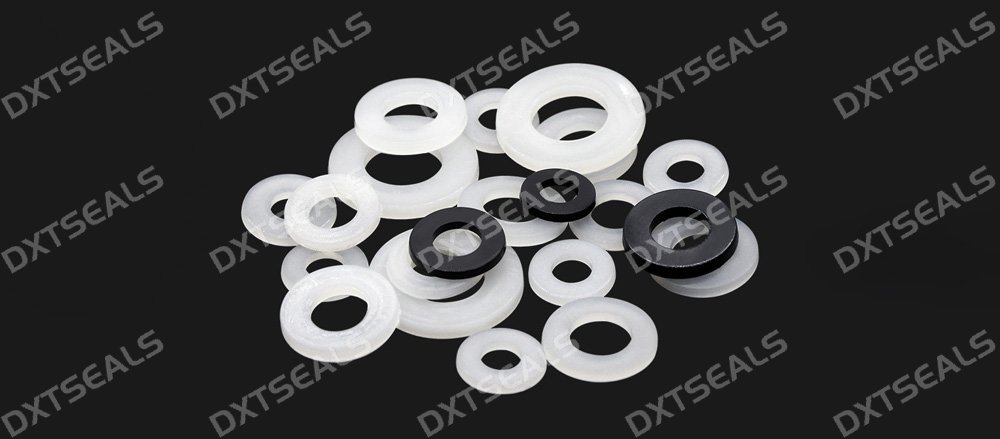
Rubber gaskets are indispensable components in various industries, ensuring reliable sealing and preventing fluid or gas leakage. Known for their flexibility, durability, and resistance to diverse environmental factors, rubber gaskets have become the preferred choice for many sealing applications. This article delves into the key features of rubber gaskets that make them effective in sealing and explores their common uses in different sectors.
Key Features of Rubber Gaskets in Sealing Applications
Rubber gaskets are designed to create a tight seal between two surfaces, preventing leaks and maintaining system integrity. Their performance is defined by the following characteristics:
1. Elasticity and Flexibility
- Rubber gaskets easily conform to uneven surfaces, filling gaps and creating a secure seal.
- Their flexibility ensures a consistent seal even under vibration or movement.
2. Resistance to Compression Set
- High-quality rubber materials maintain their shape and sealing properties under prolonged pressure.
- This feature is crucial for applications where the gasket is subject to constant compression.
3. Chemical Resistance
- Rubber gaskets can withstand exposure to oils, fuels, chemicals, and other substances without degrading.
- Common materials like NBR (nitrile rubber) and FKM (fluoroelastomer) are tailored for specific chemical environments.
4. Temperature Tolerance
- Rubber gaskets can perform effectively across a wide temperature range, from extreme cold to high heat.
- Materials like silicone and EPDM (ethylene propylene diene monomer) are ideal for high-temperature applications.
5. Durability and Longevity
- Rubber gaskets are resistant to wear, aging, and environmental factors such as UV exposure and ozone.
- Their durability ensures a long service life, reducing the need for frequent replacements.
Common Materials Used for Rubber Gaskets
-
Nitrile Rubber (NBR)
- Ideal for oil and fuel resistance.
- Commonly used in automotive and industrial applications.
-
EPDM
- Excellent resistance to weather, ozone, and water.
- Suitable for outdoor and plumbing applications.
-
Silicone Rubber
- High-temperature resistance and flexibility.
- Frequently used in food, medical, and high-temperature environments.
-
Fluoroelastomer (FKM)
- Outstanding chemical and heat resistance.
- Used in aerospace and chemical processing industries.
-
Neoprene
- Good resistance to oils, weather, and moderate chemicals.
- Versatile material for various industrial applications.
Common Uses of Rubber Gaskets
Rubber gaskets are essential in a wide range of industries, providing reliable sealing solutions for diverse applications:
1. Automotive Industry
- Used in engines, transmissions, and exhaust systems to seal components and prevent leaks.
- Commonly found in oil pans, valve covers, and intake manifolds.
2. Plumbing Systems
- Provide watertight seals in pipes, faucets, and valves.
- Prevent leakage in residential, commercial, and industrial plumbing systems.
3. Industrial Machinery
- Ensure the integrity of pumps, compressors, and hydraulic systems.
- Withstand high-pressure and high-temperature environments.
4. Food and Beverage Industry
- Silicone gaskets are used in equipment requiring FDA compliance for food safety.
- Maintain hygiene and prevent contamination in food processing systems.
5. Aerospace and Aviation
- High-performance gaskets made from FKM or other advanced materials ensure reliability under extreme conditions.
- Used in fuel systems, hydraulic systems, and cockpit components.
6. Electrical and Electronics
- Rubber gaskets provide insulation and protection against dust, moisture, and vibration in enclosures and connectors.
7. Medical Equipment
- Silicone rubber gaskets are widely used in medical devices due to their biocompatibility and sterilization resistance.
Advantages of Rubber Gaskets
-
Versatility
- Suitable for applications in multiple industries, from automotive to aerospace.
-
Cost-Effectiveness
- Affordable manufacturing and long service life reduce overall operational costs.
-
Customizability
- Available in various shapes, sizes, and materials to meet specific requirements.
-
Environmental Resistance
- Maintain performance under exposure to harsh environmental conditions.
How to Choose the Right Rubber Gasket
When selecting a rubber gasket, consider the following factors:
-
Operating Conditions
- Assess temperature, pressure, and environmental exposure.
-
Material Compatibility
- Choose a material that can withstand the substances it will encounter.
-
Size and Design
- Ensure the gasket fits precisely to avoid leaks or failure.
-
Industry Standards
- Verify compliance with industry-specific regulations and certifications.
Conclusion
Rubber gaskets excel in sealing applications due to their flexibility, durability, and resistance to diverse environmental factors. From automotive systems to industrial machinery, their reliability ensures smooth operations and system integrity. By choosing the right material and design, rubber gaskets can meet the demands of even the most challenging applications.
For high-quality rubber gaskets tailored to your specific needs, consult with a trusted manufacturer like DXTSEALS to ensure optimal performance and longevity in your applications.
